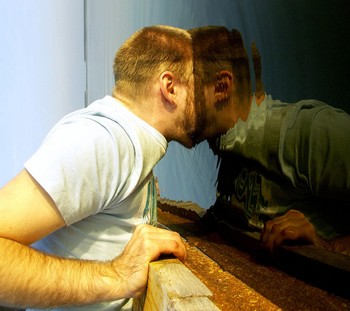Blog #27 – Is History True?
“The use of history lies in its capacity for advancing the approach to truth” – Oscar Handlin, Pulitzer-Prize winning historian
One of the biggest questions that we will encounter as amatuer historians in APUSH is how to tackle the changing nature of history. One camp emphasizes an analytical approach to history, looking at truth as objectively as possible. This camp sees truth as absolute and knowable, and that a scientific approach towards writing history is the best way to do it. Wilhelm von Humboldt explained that the historian’s job was “to present what actually happened.” The idea here is that, regardless of the time period that the reader lives in (say in 1950 or 2011), specific events occurred and people lived and did certain things. For instance, we should be able to say with certainty that the Civil War did happen.
Problems come from a historian’s bias and perspective. Attaining objectivity is the ultimate goal – examining history without looking at it from a political bias or sharing opinions on what the facts mean. Depending on an historian’s bias, for instance, he/she can argue that slavery caused the Civil War or economics or states’ rights. To be clear, historians cannot fall under the pressure of government, media, schools, or corporations to steer history to fit a certain mold or predetermined outcome. Revisionist history has been used by dictators to rewrite history that fits their needs and to reinforce their regimes.

“History will be kind to me,for I intend to write it” – Winston Churchill
The other camp feels a bit different about history. It feels that “objective” history is impossible because even when objective historians work at assembling their narrative, they have to choose facts, put them in a certain order, exclude other facts (because you can’t put them all in, can you, or are they all even relevant?), they exercise some kind of bias, no matter how slight or small. Otherwise, the history becomes a catalog of facts, almost like an encyclopedia with little to no interpretation. “In order to become a history, facts have to be put together into a pattern that is understandable and credible; and when that has been achieved, the resulting portrait of the past may become useful as well.”
Creating history, much like living, is like filtering through the multiple input of stimuli that swarm around us. Like a natural scientist, a historian searches for patterns whether they know it or not. If too many facts are included, “useless clutter” will obscure that pattern that the historian sees.
Another criticism of the objective school of history is that much of it has excluded the stories of those who had been marginalized by the march of white male history. This group has included African-American, Latino, Asian, Native-American and women’s stories. Plus, if new evidence is discovered of untold stories (say ship manifests of slave vessels or diaries of important or even average people), what should be done with those new stories? How should they be told? What if new evidence emerges after someone dies, like how a former states’ rights, pro-segregation U.S. Senator (white man) had fathered a child with an African American woman?
Your questions:
1. Which school of history – objective or revisionist – best seems to represent the truth? Why?
2. Which do you think is more important to history – making it relevant to the reader / viewer or getting the facts straight and telling it right? Can you do both? Why or why not?
Minimum of 250 words total for both answers. Due Thursday, Dec. 8 (new date).

